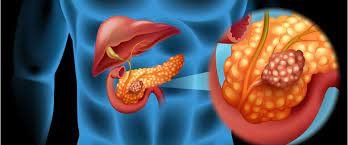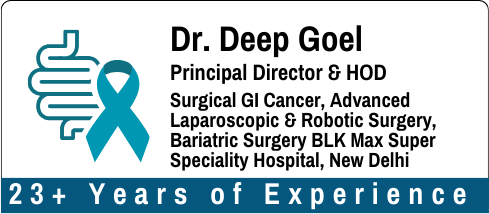How Effective Is Surgery in Treating Pancreatic Cancer?

Pancreatic cancer poses a formidable challenge in the realm of oncology, often diagnosed at advanced stages and presenting limited treatment options. Understanding the role and efficacy of surgery in combating this aggressive disease is pivotal.
While pancreatic cancer accounts for a relatively small percentage of cancer cases globally, its mortality rates are disproportionately high. According to the World Cancer Research Fund, it contributes to around 2.5% of all cancer incidences but causes approximately 4.5% of cancer-related deaths.
In 2020 alone, the International Agency for Research on Cancer reported over 4,95,000 new cases of pancreatic cancer worldwide, leading to approximately 4,66,000 deaths. These statistics underscore the urgent need for effective treatment strategies against this formidable adversary.
Amidst this challenging landscape, surgery emerges as a critical pillar in the therapeutic arsenal against pancreatic cancer, particularly for localised tumours. Understanding the effectiveness of surgical interventions involves delving into various factors influencing outcomes, such as cancer staging, resectability, and advancements in surgical techniques. Examining the efficacy of surgery within these global statistics offers insight into its impact on improving patient outcomes and reshaping the narrative of pancreatic cancer treatment.
What is the Pancreas?
The pancreas, situated behind the stomach, is crucial for digestion and blood sugar regulation. It comprises two main functions: It produces digestive enzymes that aid in food breakdown and releases hormones like insulin and glucagon to regulate blood sugar levels.
The exocrine cells generate enzymes transported to the small intestine for digestion, while the endocrine cells, clustered in islets, regulate blood sugar. This dual functionality makes the pancreas integral to the digestive and endocrine systems, ensuring proper nutrient absorption and maintaining stable blood glucose levels, vital for overall bodily function and health.
What Exactly is Pancreatic Cancer?
Pancreatic cancer refers to the abnormal, uncontrolled growth of cells in the pancreas, a crucial organ behind the stomach. This cancer typically begins in the cells lining the ducts that carry digestive enzymes or in the cells responsible for hormone production. Often, pancreatic cancer is challenging to detect in its early stages due to a lack of noticeable symptoms, leading to diagnoses in more advanced stages.
The disease’s severity lies in its tendency to spread rapidly to nearby organs and distant parts of the body, contributing to its high fatality rate. Factors like smoking, obesity, family history, and certain genetic conditions increase the risk of developing pancreatic cancer.
Treatments often include surgery, chemotherapy, radiation, or a combination, but the prognosis for pancreatic cancer remains generally poor. Early detection, though challenging, is crucial for better treatment outcomes, underscoring the importance of ongoing research for improved diagnostic methods and more effective therapies.
What is the Role of Surgery?
Surgery plays a critical role in the treatment of pancreatic cancer, especially for localised tumours. The primary aim is to remove the tumour entirely or as much as possible, potentially offering a chance for long-term survival or cure.
Dr. Deep Goel highlights, “Pancreatic cancer surgery is among the most complex in gastrointestinal oncology. It requires not only surgical expertise but also a well-coordinated post-operative care team. Success doesn’t end in the operating room—it’s about the patient’s recovery, monitoring, and long-term support.”
What are the Surgical Options?
The available surgical choices are the following:
- Whipple Procedure (Pancreaticoduodenectomy): Often used for tumours in the head of the pancreas, this complex surgery involves removing the head of the pancreas, part of the small intestine, gallbladder, bile duct, and sometimes a portion of the stomach and lymph nodes.
- Distal Pancreatectomy: This surgery is suitable for tumours in the body or tail of the pancreas. It involves removing the body and the bottom of the pancreas, sometimes along with the spleen.
- Total Pancreatectomy: This procedure is rare and involves removing the entire pancreas, spleen, part of the small intestine, gallbladder, common bile duct, and lymph nodes.
A patient from Kenya shares, “When I was diagnosed with pancreatic cancer, my family was devastated. We came to India after hearing about Dr. Deep Goel. He thoroughly explained every option, and I underwent a Whipple procedure. Thanks to his skill and care, I was walking in two days and discharged within a week. I’ve now resumed my normal life and feel stronger every day.”
How Effective is Surgery?
The effectiveness of surgery in treating pancreatic cancer varies based on several factors:
a) Stage of Cancer:
- Localised Cancer: Surgery is most effective when the cancer is confined to the pancreas and does not spread to adjacent structures or distant organs.
- Advanced Cancer: When cancer spreads beyond the pancreas, surgical options become limited, and other treatments like chemotherapy or radiation therapy may be recommended.
b) Respectability:
Resectable tumours are those that can be removed entirely by surgery. Surgery offers better outcomes for resectable tumours.
Borderline Resectable/Unresectable Tumours: Sometimes, the tumour may be partially removable or challenging to eliminate, impacting surgical effectiveness.
c) Patient’s Overall Health:
The patient’s overall health and ability to tolerate surgery and subsequent treatments significantly influence the effectiveness of surgical intervention.
d) Advancements in Surgery:
Advancements in surgical techniques, such as minimally invasive and robotic-assisted surgeries, have improved outcomes for selected patients with pancreatic cancer. These approaches reduce complications, shorten recovery times, and sometimes enable surgeons to perform more precise operations, enhancing the effectiveness of surgery.
Dr. Deep Goel states, “Surgery proves highly effective in certain cases. For pancreatic cancer, its success hinges on several factors, such as tumour size and stage. In early stages or localised tumours, it offers promising outcomes. However, with more advanced or aggressive cancers, surgery alone might not be sufficient. Complementary treatments alongside surgery often enhance overall effectiveness for improved patient outcomes.”
A patient of Dr. Deep shares, “I had lost hope after being told my tumour was inoperable. Dr. Goel and his team re-evaluated my scans and recommended a combination of chemo followed by surgery. It worked! After my distal pancreatectomy, my recovery was smooth. I’m now cancer-free and grateful for the personalised attention I received.”
What are the Challenges and Future Directions?
Despite advancements, challenges persist in treating pancreatic cancer surgically. Early detection remains a significant hurdle, as symptoms often manifest late, limiting the number of patients eligible for surgery. Moreover, even after successful surgery, the risk of recurrence remains high.
Conclusion
Surgery plays a crucial role in treating pancreatic cancer, particularly in localised cases. Global statistics emphasise the significance of effective surgical interventions in improving patient outcomes. However, the effectiveness of surgery heavily depends on multiple factors such as cancer stage, resectability, and patient health. As advancements continue, interdisciplinary approaches integrating surgery with other treatments aim to enhance survival rates and overall quality of life for those affected by this challenging disease.
FAQs
1. Will I need chemotherapy or radiation after pancreatic cancer surgery?
Yes, in many cases. Even if the tumor is removed, doctors often recommend chemotherapy (and sometimes radiation) after surgery to kill any remaining cancer cells and reduce the risk of recurrence.
2. How long is the recovery period after pancreatic cancer surgery?
Recovery varies by procedure and individual health, but most patients require 6 to 8 weeks to resume normal activities. Full recovery, especially after a Whipple procedure, may take several months.
3. Will my digestion or blood sugar be affected after surgery?
Yes, especially if a large portion of the pancreas is removed. You may experience digestive issues or diabetes due to reduced enzyme and insulin production. Enzyme supplements or insulin therapy may be required.
4. What are the risks or complications of pancreatic surgery?
As a major operation, risks include infection, bleeding, delayed gastric emptying, leakage from surgical sites, and general anesthesia-related complications. Choosing an experienced surgical team minimizes these risks.
5. Can pancreatic cancer come back after surgery?
Pancreatic cancer has a high recurrence rate, especially in advanced stages, but post-operative monitoring, follow-up imaging, and adjunct therapies can be helpful for long-term outcomes.
Explore more blogs: Is Pancreatic Cancer Surgery Painful?

